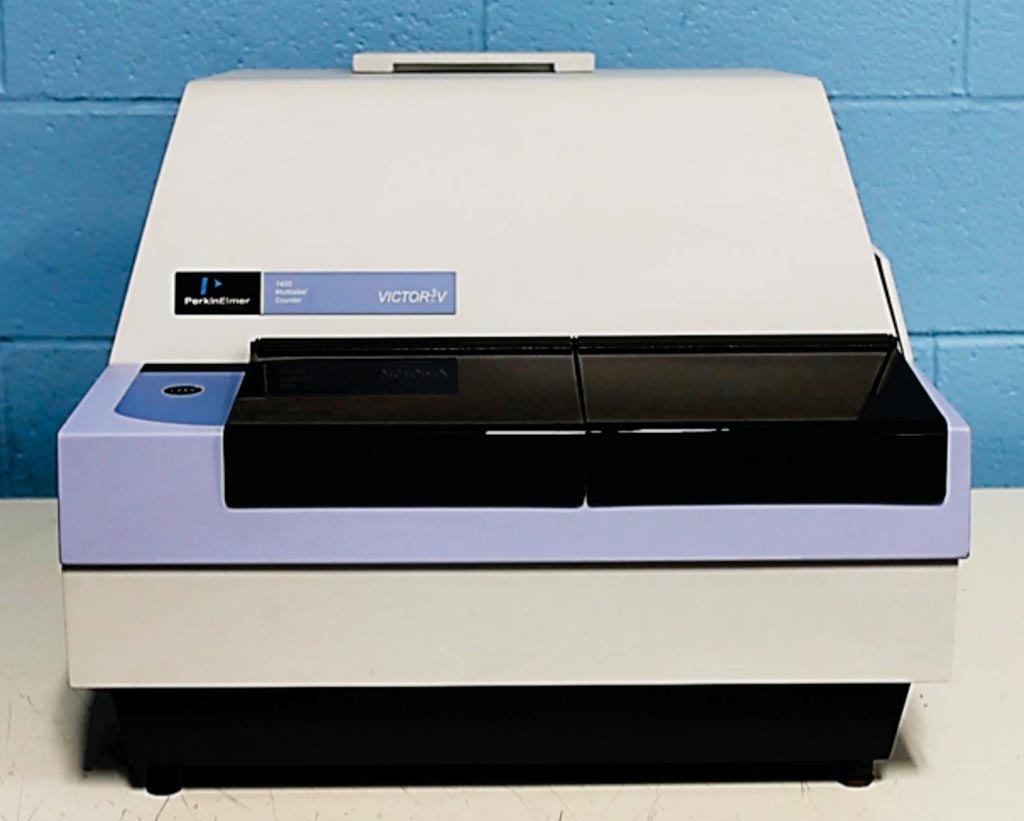Serum Markers Used to Develop Lupus Risk Index
By LabMedica International staff writers
Posted on 15 Jun 2018
Systemic lupus erythematosus (SLE) is a chronic systemic autoimmune disease characterized by defects in B cell tolerance leading to the production of multiple autoantibodies. In particular, SLE is characterized by high affinity IgG anti-nuclear autoantibodies including anti-double stranded (ds) DNA antibodies.Posted on 15 Jun 2018
In Western Europe and North America, individuals of West African descent have a three to four fold greater incidence of SLE than Caucasians. Paradoxically, West Africans in sub-Saharan Africa appear to have a low incidence of SLE, and some studies suggest a milder disease with less nephritis.

Image: The Victor3 V multi-label plate reader (Photo courtesy of PerkinElmer).
An international team of scientists working with those at the Feinstein Institute for Medical Research (Manhasset, NY, USA) compared potential biomarkers of SLE among women with different SLE risks. They analyzed blood serum samples from five cohorts: 40 Malian women with a history of malaria infection (MAL), 51 African American lupus patients (SLE), 80 healthy African American women (AAHC), 98 unaffected sisters of lupus patients (SIS), and 16 Caucasian healthy controls (CHC).
The investigators detected immunoglobulin M (IgM) and IgG anti-dsDNA antibodies using immunoassays and the plates were read at 405 nm using a PerkinElmer Victor 3 enzyme-linked immunosorbent assay (ELISA) reader. The team measured complement component 1q (C1q) using an immunoassay performed in microtiter plates. The absorbance of each well was read at 30 minutes at 405 nm. The standard curve of purified human C1q was linear in the 2 ng to 250 ng range. Both the standards and serum samples were assayed in triplicate.
The scientists found that titers of IgM antibodies, which are known to protect against lupus onset, were lowest in the SLE, SIS and AAHC cohorts and higher in the MAL and CCH cohorts. Levels of IgG antibodies, the presence of which precedes lupus onset, were highest in the SLE and MAL cohorts and similar in the CHC, AAHC and SIS cohorts. The SLE cohort was also found to have the lowest C1q levels. C1q promotes immune tolerance, which includes stopping immune cells from attacking the body's own cells as is the case in autoimmune diseases such as lupus. They noted that 90% of individuals with hereditary C1q deficiency also have lupus.
Betty Diamond, MD, the corresponding author of the study, said, “The possibility that a risk index could help identify populations as risk for development of clinical lupus is novel and exciting. The risk index we developed was highest in SLE patients; second highest in unaffected sisters of SLE patients; third highest in healthy African-American women and lowest in healthy Caucasian women and malaria-exposed West African women. Thus, it confirms known lupus risk, as well as our hypothesis that high levels of IgG, low levels of IgM (and the resulting high IgG to IgM ratio) and low levels of C1q predispose to lupus. Our results also confirm the hypothesis that exposure to malaria results in increased levels of protective IgM antibodies and C1q which may delay onset of lupus in genetically predisposed individuals.” The study was published on June 1, 2018, in the journal Molecular Medicine.
Related Links:
Feinstein Institute for Medical Research














